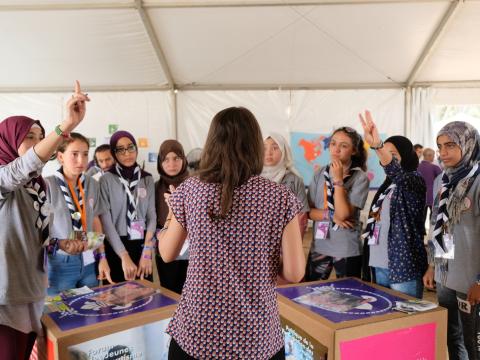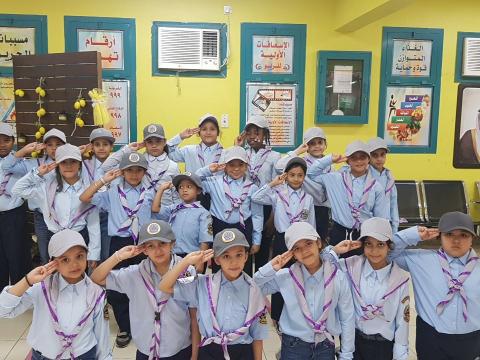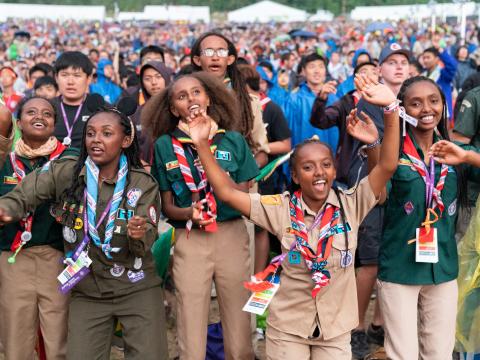Opinion: Non-formal education is key to gender equality

By HRH Princess Lamia bint Majid Al Saud and Ahmad Alhendawi
The impacts of a global pandemic have been felt by everyone, but they have been particularly hard-hitting for girls and young women. The pandemic has exacerbated gender gaps, leading girls and young women to experience job losses, disruptions to their education, a rise in domestic violence, and carry the burden associated with unpaid domestic and care work.
As the world opens back up post-pandemic, and societies look to rebound from the economic and social effects of the past two years, we need to double the efforts to create opportunities to include and empower girls and young women who have been disproportionately impacted by the global health crisis, and who in many societies are still systematically left on the sidelines.
Today half of the world’s population is female. Young people are representing an overlapping half. By denying girls, women and youth equal rights, we deny an enormous part of the population a chance to live life to their full potential.
Collectively, the world has made significant advances to address gender gaps by reforming access to education and healthcare, promoting diversity, equity and inclusion in the workplace, mobilising in support of grassroots campaigns and women’s movements, and tackling systemic inequities and injustices in all facets of society. And yet so much work remains to be done. Simply put, there is no achieving the 17 Sustainable Development Goals without closing the gender gaps which persist today.
One critical way to make progress is to further expand access to education for the millions of girls and young women who are currently not in school, or deprived of an education. At the same time, we can also provide greater opportunities and equal access to non-formal education to address gender inequality and discrimination from an early age onward.
As an educational youth movement open to all, Scouting is well positioned to champion greater equality. For more than century, Scouting and its unique method of non-formal education have been providing a safe and inclusive space for girls and young women to develop skills that can enable them to take on leadership roles. Around the world there are inspiring examples of where this work is already underway.
In Saudi Arabia, a newly launched initiative has established Scout groups for young women in several Saudi universities for the first time. The effort will encourage greater participation of young women in society through volunteerism and community service, and is being made possible through a partnership between Alwaleed Philanthropies, the World Organization of the Scout Movement (WOSM) and the World Scout Foundation, in collaboration with the National Scout Organization of Saudi Arabia and under the leadership of HH Princess Sama Bint Faisal Al Saud.
Alwaleed Philanthropies and WOSM are also working together around Scouts for SDGs, an unprecedented mobilisation of 57 million Scouts to make the world’s largest coordinated youth contribution to the Sustainable Development Goals by 2030, and build a future where young people are playing a leading and constructive role in society as active citizens.
Elsewhere we have seen individual Scouts lead the way on being champions for a safer and more gender equal world. In Bangladesh, Scout Leaders have pioneered Scout groups in schools to increase young women’s self-esteem and start a dialogue about gender equality. While in Burundi, local Scout groups are generating funds, donating supplies and raising awareness to support victims of gender-based violence.
These examples are complemented by efforts in partnership with other leading institutions. Together with UN Women and their HeForShe initiative, Alwaleed Philanthropies and WOSM have encouraged young people to take the HeForShe pledge, and developed a HeForShe Action Kit for Scout Leaders with a series of activities designed to engage young people of all ages to take action for gender equality. In particular, this includes the critical task of sensitising boys and young men to respect girls and women as equals, to share rights and responsibilities, and to encourage them join the work together with girls and young women for gender equality.
When young people, through greater investments and opportunities to access education including non-formal education, are empowered to be champions of gender justice and equality, the whole of society becomes more just and equal. We must continue to ensure that gender equality is mainstreamed in all we do, and to leverage the power of this largest generation of young people to drive social progress towards the world we all want.


